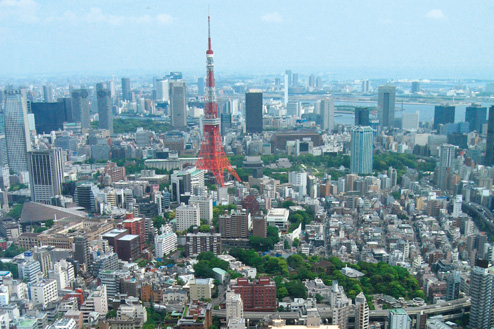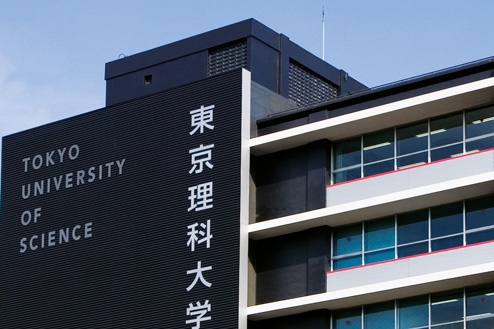Taxation
Residents are subject to two kinds of tax: national and local. National taxes comprise a mix of direct and indirect taxes, including personal income tax, consumption tax on goods and services (5%), alcohol, tobacco, and petrol, inheritance tax, gift tax on gifted property, vehicle weight tax, stamp duty, and customs duty on imported goods. Local taxes are a combination of a metropolitan tax for living in the Tokyo area and municipal taxes paid to your ward or city office.
Expats are subject to the same tax laws and rates as nationals, with some conditions. Residents of one year or less are only taxed on income received in Japan. If personal annual income within the tax year amounted to less than ¥1.95 million, a rebate can be claimed. Residents of one to four years and 364 days are taxed on income received in Japan and abroad. Residents of five years or more are taxed on all income sources in Japan, transferred to Japan from abroad or held in a foreign bank account.
Personal income tax rates vary according to income bracket. It is usually deducted at source by your employer before payday. Your employer will also file all your tax returns on your behalf. Failure to pay taxes in Japan can result in fines, penalties, and seizure of assets so it’s best to keep up to date.
If you have additional sources of income or are self-employed, you will have to file all or part of your tax returns on your own. Tax forms are available at your local tax office (in Japanese only). Most ward tax offices offer help (some in English) during the tax season (mid-February to March 15). Be prepared for a long wait, and bring all travel and expense receipts, your Certificate of Alien Registration card, bank account information, and withholding tax statement (Gensen Chōshū-hyō). Depending on what your employer covers, you may also be eligible to claim transport, teaching materials, or other such items as expenses.
Rebates are the same for every taxpayer, regardless of occupation. The majority of employers deduct income tax at source so it’s quite likely that most taxpayers will get some kind of rebate as estimates are usually slightly higher than the total actually due. Any rebate due will be paid into the same account as your pay, usually within a few months following the end of the tax year.
In 2007 prefectural and local tax was upped from 8% to 10% of taxable income, with 4% going to the Tokyo prefecture and 6% to the respective ward or city office. For the self-employed, Prefectural Enterprise Tax is 3% to 5%. This is levied on a quarterly basis, and bills are sent by post. It is payable at most banks and post offices. If the quarterly payment is more than your budget can handle, you can negotiate smaller, more frequent payments through your local ward.
Expats are subject to the same tax laws and rates as nationals, with some conditions. Residents of one year or less are only taxed on income received in Japan. If personal annual income within the tax year amounted to less than ¥1.95 million, a rebate can be claimed. Residents of one to four years and 364 days are taxed on income received in Japan and abroad. Residents of five years or more are taxed on all income sources in Japan, transferred to Japan from abroad or held in a foreign bank account.
Personal income tax rates vary according to income bracket. It is usually deducted at source by your employer before payday. Your employer will also file all your tax returns on your behalf. Failure to pay taxes in Japan can result in fines, penalties, and seizure of assets so it’s best to keep up to date.
If you have additional sources of income or are self-employed, you will have to file all or part of your tax returns on your own. Tax forms are available at your local tax office (in Japanese only). Most ward tax offices offer help (some in English) during the tax season (mid-February to March 15). Be prepared for a long wait, and bring all travel and expense receipts, your Certificate of Alien Registration card, bank account information, and withholding tax statement (Gensen Chōshū-hyō). Depending on what your employer covers, you may also be eligible to claim transport, teaching materials, or other such items as expenses.
Rebates are the same for every taxpayer, regardless of occupation. The majority of employers deduct income tax at source so it’s quite likely that most taxpayers will get some kind of rebate as estimates are usually slightly higher than the total actually due. Any rebate due will be paid into the same account as your pay, usually within a few months following the end of the tax year.
In 2007 prefectural and local tax was upped from 8% to 10% of taxable income, with 4% going to the Tokyo prefecture and 6% to the respective ward or city office. For the self-employed, Prefectural Enterprise Tax is 3% to 5%. This is levied on a quarterly basis, and bills are sent by post. It is payable at most banks and post offices. If the quarterly payment is more than your budget can handle, you can negotiate smaller, more frequent payments through your local ward.













